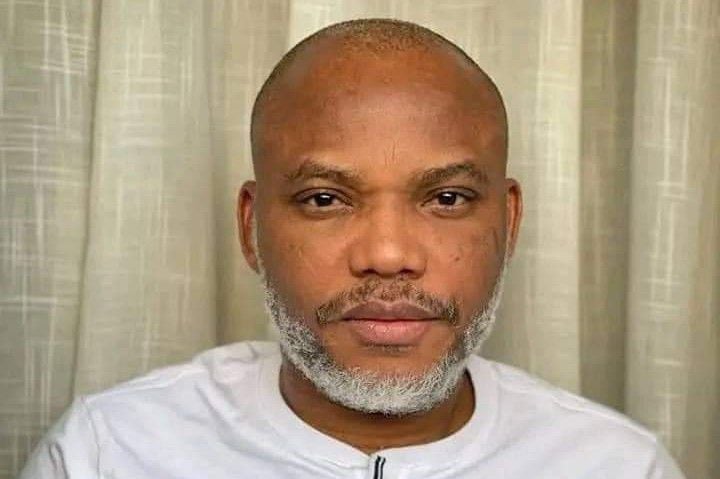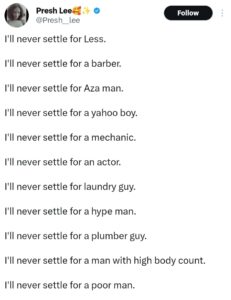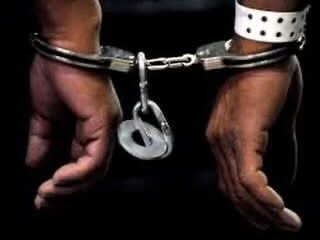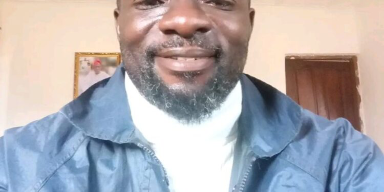News
Probe state-sponsored insecurity in Southeast – Nnamdi Kanu tells EU, US ahead of trial

The embattled leader of the Indigenous People of Biafra, IPOB, Nnamdi Kanu, has called on the European Union, EU, and United States, US, to conduct an impartial investigation into state sponsored insecurity in the Southeast.
Kanu made the call during a meeting with his legal team to address Nigerian government’s alleged attempts to manipulate public opinion ahead of his trial on April 29, 2025.
He highlighted concerns over deliberate efforts to falsely link IPOB members to fabricated raids in Imo and Anambra States.
In a post by his Special Counsel, Aloy Ejimakor, Kanu described these raids as state-sponsored tactics to deflect attention from global campaigns for his release.
According to Ejimakor: “Today, April 23, 2025, Mazi Nnamdi Kanu met with his legal team to address the Nigerian government’s alleged attempts to manipulate public opinion ahead of his trial on April 29, 2025.
“Onyendu MNK highlighted concerns over deliberate efforts to falsely link the Indigenous People of Biafra, IPOB, to fabricated raids in Imo and Anambra, describing these as state-sponsored tactics to deflect attention from global campaigns for his release.
“In response, Kanu has instructed his lawyers to formally engage the United States and the European Union to conduct an impartial investigation into the wave of state-sponsored insecurity in Southeast Nigeria. We remain committed to truth and justice. #FreeNnamdiKanu.”
This comes as IPOB described the reports claiming that the Finnish government will extradite self-acclaimed Prime Minister of Biafra, Simon Ekpa to Nigeria to face terrorism charges as a manipulation ahead of Kanu’s trial.
IPOB claimed that the APC-led federal government’s manipulated false narrative was ill-timed, adding that Ekpa is not a member of the group.
It was widely reported that the Finnish authorities had confirmed that Ekpa will be extradited to Nigeria in July 2025 to face terrorism related charges.
The decision was said to have followed months of diplomatic negotiations and legal proceedings between Nigeria and Finland, marking a significant step in addressing the unrest linked to Ekpa’s activities in Nigeria’s southeast.
Ekpa was arrested in Lahti, Finland, in November 2024 by the Finish Police who accused him of using social media platforms to incite violence against Nigerians. Four others were also detained for allegedly financing his activities alongside Ekpa.
The Päijät-Häme District Court in Lahti finalized the extradition order on April 18, 2025, setting July 15 as the tentative date for Ekpa’s transfer to Nigeria.
News
Man in shock after lady he lodged with in a hotel in Abuja flees with his car and other valuables

A Nigerian man is currently in shock after a young lady identified as Precious Chinyere , whom he took to a hotel in the Asokoro area in the FCT for a romantic getaway allegedly fled with his car and other personal belongings on Thursday, February 5,
The distraught man and Precious had visited the hotel and opted for a short time stay. Things took a different in the evening when the man noticed Precious had left the hotel room without notifying him and took along with her some of his personal belongings including phones and laptop and also his car.
The victim immediately reported the incident to the police.
When contacted, the spokesperson of the FCT police command, SP Josephine Adeh, told LIB that the matter is currently being investigated and that efforts are being made to apprehend the suspect.
News
US Reacts As De@th Toll In Kwara Terror Attacks Hits 200

The United States Mission in Nigeria has condemned the k!lling of more than 200 civilians in recent attacks on communities in Kwara State.
Recall that terrorists launched de@dly attacks on Woro and Nuku communities in Kaiama Local Government Area of the state on Tuesday night, k!lling unsuspecting citizens.
It was gathered that the gunmen invaded the villages, opened fire on residents and burned homes.
According to reports, the de@th toll from the unfortunate incident hit 200 on Thursday night.
Reacting, the US Mission Nigeria condemned the k!lling via a post on its official X handle.
The post reads, “The United States condemns the horrific attack in Kwara state in Nigeria, which claimed the lives of more than 160 people, with the de@th toll still unconfirmed and many still unaccounted for.
“We express our deepest condolences to the families of those affected by this senseless violence.
“We welcome President Tinubu’s order to deploy security forces to protect villages in the area and his directive to federal and state officials to provide aid to the community and bring the perpetrators of this atrocity to justice.”
News
“I’ll never settle for a barber, yahoo boy or a poor man” — nail tech’s list of men she says she can’t marry sparks reactions online

A Nigerian nail technician has set social media talking after openly listing the kind of men she says she can never settle for.
In a now-viral post, she stated clearly that she refuses to “settle for less” and went on to mention professions and traits she considers a no-go area.
According to her, she can never settle for a barber, an aza man, a yahoo boy, a mechanic, an actor, a laundry man, a hype man, or a plumber. She also added that she wouldn’t marry a man with a high body count or a poor man.

-
Business1 year ago
US court acquits Air Peace boss, slams Mayfield $4000 fine
-

 Trending1 year ago
Trending1 year agoNYA demands release of ‘abducted’ Imo chairman, preaches good governance
-

 Politics1 year ago
Politics1 year agoMexico’s new president causes concern just weeks before the US elections
-

 Politics1 year ago
Politics1 year agoPutin invites 20 world leaders
-

 Politics1 year ago
Politics1 year agoRussia bans imports of agro-products from Kazakhstan after refusal to join BRICS
-
Entertainment1 year ago
Bobrisky falls ill in police custody, rushed to hospital
-
Entertainment1 year ago
Bobrisky transferred from Immigration to FCID, spends night behind bars
-
Education1 year ago
GOVERNOR FUBARA APPOINTS COUNCIL MEMBERS FOR KEN SARO-WIWA POLYTECHNIC BORI











